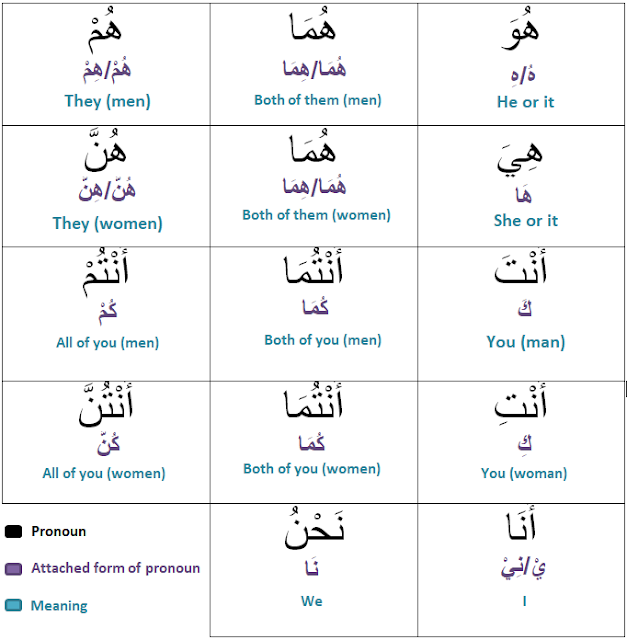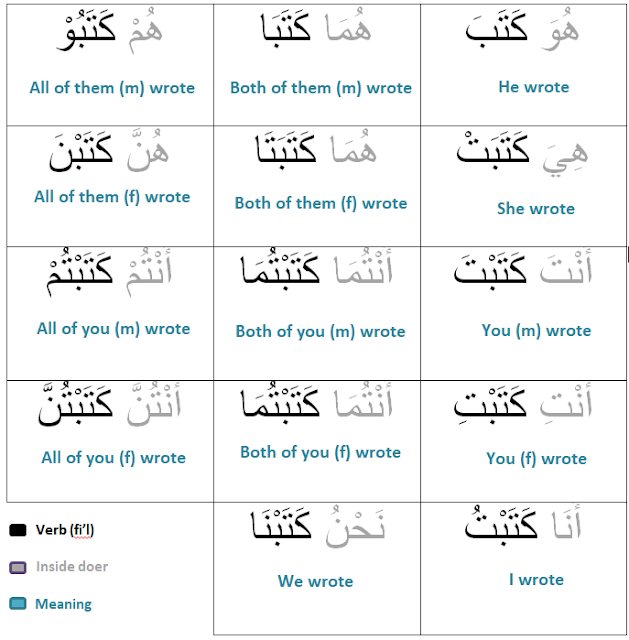Hadhiya (Blog post 9)
“I was too angry when I spoke that way.”
“I did not mean to do that I was just too stressed at
the time.”
“I was just too tempted and that lead me to give in.”
These are some of the justifications that we tell others
AND ourselves after we commit a sin. We tend to put the blame everything else
except our own selves when we make a mistake. And a lot of times we tend to
blame our own emotions that seem to be out of control. We use our own emotions
as an excuse to not take full responsibility of our own wrong doings.
Allah swt in His incredible Quran, protects us from this
behavior by the use of a specific word in this ayah of Suratul Isra.
إِنَّ
السَّمْعَ وَالْبَصَرَ وَالْفُؤَادَ كُلُّ أُولَـٰئِكَ كَانَ عَنْهُ مَسْئُولًا
“…..no
doubt the hearing, the sight and the heart, all of them are going to be
questioned about.” Suratul Isra, 36
The
word “fu’aadh’ in the ayah is translated as ‘heart’. But there are two words
used in the Quran for the heart. One is ‘qalb’ and the other one is ‘fu’aadh’.
The heart is normally called qalb in Arabic because the heart is something that
keeps changing. The emotions in the heart don’t remain the same and it doesn’t
stay still even physically. The heart is called ‘fuaadh’ when the heart is
overwhelmed with one emotion. Fuaadh comes from the word ‘faadha’ which means
food that is cooked under intense heat or fire. So fuaadh is literally a heart
that is ‘fired up’. That can’t feel anything but one thing.
In
the ayah, Allah says that even our ‘fuaadh’, our heart that is overwhelmed with
one thing, be it anger, stress, temptations, is going to be questioned about.
What we do as a result of even the most intense emotions are going to be
questioned about. So as believers, we should try our very best to control our
behavior even under the most intense emotions. And the only
reason why Allah mentioned this, is because He swt made us capable of
controlling them. Because He Knows that we can take full responsibility for our
own actions.
See
how the use of ONE WORD gives the ayah so much more meaning? And the sad thing
is this cannot be seen in translation. Both fuaadh and qalb will be translated
as heart in the translation. But Allah uses each word in each ayah for a
specific purpose. Allah used Words in the Quran in a way that no one can
exchange or add a word to make it more perfect or beautiful. That’s how the
Quran is! <3
May
Allah increase us in beneficial knowledge. Ameen!
******************************************************************
"އަހަރެން އެހެން ވާހަކަ ދެއްކިއިރު
އަހަރެން ހުރީ ވަރަށް ރުޅިއައިސްފައެވެ."
"އަހަރެން އެހެން ހަދަން އޭރުވެސް
ޤަޞްދެއްނުކުރަމެވެ. އެވަގުތު ކަންބޮޑުވެފައި ހުރިވަރުން ކުރެވުނީއެވެ."
"އަހަންނަށް އަމިއްލަ އެދުންތަކުގެ މައްޗަށް ބާރު
ނުހިންގެވުމުން އެކަން ކުރެވުނީއެވެ."
މިއީ ފާފައެއް ކުރުމަށްފަހު އަހަރުމެން އެހެން މީހުން
ގާތުގައާއި އަމިއްލަ ނަފްސުގާތު ވެސް ބުނާ ބައެއް ވާހަކަތަކެވެ. ކުށެއް ކުރެވުމުން
އަމިއްލަ ނަފްސު ފިޔަވައި އެހެން ހުރިހާ ކަމެއްގެ ބޮލުގައި އިލްޒާމް އެޅުވުމަކީ
އަހަރުމެންގެ ތަބީޢަތުގައިވާ ކަމެކެވެ. މީގެ ތެރެއިން ވަރަށް ގިނަފަހަރު އެ
އިލްޒާމް އަހަރުމެންގެ އަމިއްލަ އިޙްސާސްތަކުގެ މަތީގައި އަޅުވަން އަހަރުމެން
މަސައްކަތް ކުރަމުއެވެ. ކުށުގެ ޒިންމާ އެންމެ ފުރިހަމައަށް ނުނެގުމުގެ
ބަހަނާއަކަށް އެ އިޙްސާސްތައް އަހަރުމެން ދައްކަމުއެވެ.
ﷲ ސުބްޙާނަހޫ ވަތަޢާލާ އަހަރުމެން މިފަދަ ޝަޚްޞިއްޔަތަކަށްވުމުން
ރައްކާތެރި ކުރައްވަނީ، އިސްރާ ސޫރަތުގެ މި އާޔަތުގައި ބޭނުންކުރެވިފައިވި
އެއްބަހުންނެވެ.
إِنَّ
السَّمْعَ وَالْبَصَرَ
وَالْفُؤَادَ كُلُّ
أُولَـٰئِكَ كَانَ
عَنْهُ مَسْئُولًا
"......ޝައްކެއްނެތް ގޮތުގައި އަޑުއެހުމާއި،
ފެނުމާއި، ހިތަކީ އެއިން ކޮންމެ ކަމަކާމެދު ސުވާލުކުރެވޭނެ ކަންތައްތަކެވެ."
ސޫރަތުލް އިސްރާ، 36
މި އާޔަތުގައިވާ އެއްބަސްކަމުގައިވާ فُؤَادَ މާނަ ކުރެވިފައިވަނީ 'ހިތުގެ' މާނައިގައެވެ. އެހެނަސް
ޤުރުއާނުގައި ހިތަށްޓަކައި ދެ ބަސް ބޭނުންކުރެވިފައިވެއެވެ. އެއްބަހަކީ قَلْب
އެވެ. އަނެއްބަހަކީ فُؤَاد އެވެ. ޢާއްމު ގޮތެއްގައި ޢަރަބި ބަހުން ހިތަށް ކިޔޭ
ނަމަކީ قَلْب އެވެ. އެއީ ހިތަކީ ޢާއްމުގޮތެއްގައި އަބަދުވެސް ބަދަލުވަމުންދާ
އެއްޗަކަށްވާތީވެއެވެ. ހިތުތެރޭގައިވާ އިޙްސާސްތައްވެސް އަބަދުމެ ބަދަލުވަމުން
ދާއިރު ޖިސްމާނީ ގޮތުން ވެސް ހިތް އަބަދު އޮންނަނީ ތެޅިތެޅިއެވެ. ޢަރަބި ބަހުން
ހިތަށް فُؤَاد އޭ ކިޔެނީ އެ ހިތް އެއްޖަޒުބާތަކުން ފުރިފައިވި
ވަގުތެއްގައެވެ. فُؤَاد މި ބަސް އަންނަނީ فَادَ
ކިޔާ ބަހަކުންނެވެ. އޭގެ މާނައަކީ
ހޫނުގަދަ އަލިފާނެއްގެ މަތީގައި ކެއްކެމުން ދާ ކާ އެއްޗެކެވެ. އެހެންކަމުން فُؤَاد ގެ މާނައަކީ އެއްޖަޒުބާތެއްގެ ހޫނުކަން
އިޙްސާސްކުރަމުންދާ ހިތެވެ. އެ ހިތަކަށް އެއްކަމެއްގެ އިޙްސާސް ނޫނީ އެހެން
އިޙްސާސެއް ނުކުރެވޭ ހިތެވެ.


Comments
Post a Comment